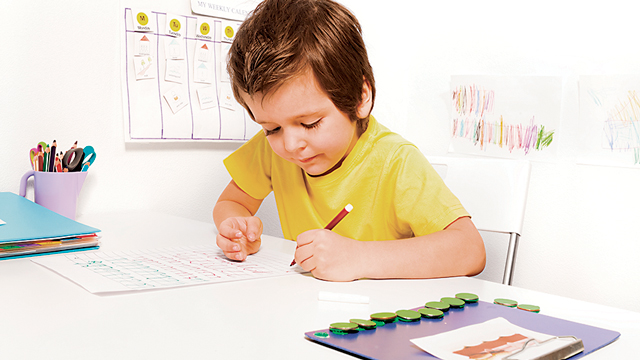For many adults who feel overwhelmed with emotional stress, seeking the help of a professional therapist is common practice.
So, why should it be any different for children?
Even though they may not be able to vocalize their emotions in the same way as adults, children can also experience emotional stress. And despite our best intentions, as parents and caregivers, we can’t always provide the therapeutic support our children may need.
Play therapy can help children overcome stress in a therapeutic environment they relate to, because let’s face it: Children love to play.
Anyone who works with kids knows that toys and games are the best way to engage children. In fact, because playing happens so naturally for children, play therapy has become one of the most effective mental-health treatment methods for children ages two to twelve years old.
Of course, regular and unstructured play is essential for healthy development, but children often lack appropriate opportunities for it. Skilled play therapists can recognize play themes that reflect the child’s emotional needs and use them to help process their concerns. When provided with the opportunity to play at the therapy office, children quickly engage in types of play that promote their healing and growth. For example, children who struggle with separation anxiety often play out the theme of constancy, which includes hiding toys or burying things in the sand. In play, the child has control over how long items are missing. The therapist can also join them in the search for what was lost. Children with frequent nightmares may play out scary situations. Using their imagination, and accompanied by the play therapist, they can gain mastery over their fears and turn into the hero of their story.
We all know how important traditional play is for children, but through play therapy, certain specialized goals may be achieved. Children can learn to take responsibility for their actions, improve their behavior, develop respect and empathy, increase their self-esteem, control intense emotions, adjust to life changes, and resolve traumatic events.
Play therapy can be more structured, during which the counselor incorporates a certain type of playful activity aimed at addressing a specific goal. However, children don’t always need to process their issues verbally.
Play therapists respond to play themes, often saying back to the child what she is doing. Children appropriately interpret this as permission to continue, and delve deeper. A child with difficulties managing her anger may play out a traffic accident. Playing with your child at home, you might respond to crashing cars with a statement like, Come on, play nice! But the counselor joins the child in observing the chaotic plot and reflecting back feelings that may be involved in this type of play. Even though the reason that brought the child to therapy may not be that specific scenario, a skilled therapist uses this type of play to address underlying feelings such as helplessness, fear, or anger. Week after week, children in play therapy continue their play right where they left off. As the process continues, their play evolves. And as their play moves through specific stages, emotions become less overwhelming, and many families note that behavior outside of the sessions improves.
By responding to the child’s play, the therapist allows the child to process unresolved feelings, build a strong sense of self, and gain helpful coping skills – all in a natural manner. Children don’t always realize that play therapy is counseling. And once they see that the therapist doesn’t direct their play, children become even more engaged – even when they know inappropriate behavior may have brought them to therapy.
You might be asking, Could my child benefit from therapy? What kinds of behaviors would make a child a good candidate for play sessions? Many children who benefit from play therapy repeatedly act in ways that are overwhelming to their parents, more so than the average child. Frequent and intense temper tantrums, power struggles, exaggerated worries, or crying spells may be behaviors that have been observed. Reactions fueled by emotions that appear out of proportion can be safely addressed in play therapy. These are usually disruptive behaviors that get in the way of a family’s day-to-day activities and cause significant stress. But children may also internalize their emotions to avoid expressing them with their behavior. Extreme shyness, verbal expressions of low self-esteem, or anxiety around vocalizing their thoughts and feelings may also be signs that a child needs some extra help in the form of play therapy.
Just as adult counseling is more than simply talking to someone, play therapy is much more than simply playing. Play is the language of children and play therapists are trained to speak it. They engage children purposefully and choose each response carefully. And though it might appear as if the child is just playing, children in therapy purposefully communicate through play. It may look as all fun and games, but their play session is hard work. And as counseling progresses, children (and their parents) notice that they feel better, cope easier, and life becomes manageable.





